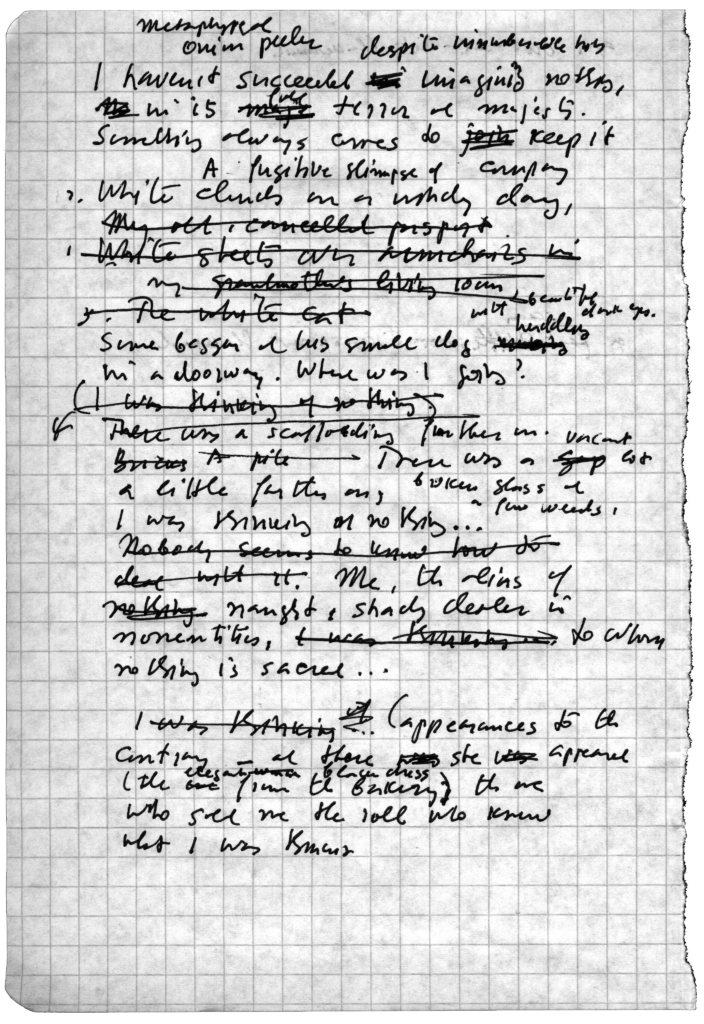
A manuscript page from Charles Simic’s “One to Worry About.”
Charles Simic, the former poet Laureate and a giant of life and literature, died Monday at the age of eighty-four. A winner of the Pulitzer Prize and countless other accolades, and longtime teacher at the University of New Hampshire, Simic was also a beloved poetry editor of The Review, alongside Meghan O’Rourke, from 2005 to 2008.
Born in 1938, Simic was a prolific writer of both poetry and nonfiction. He wrote often about war-torn Belgrade, where his childhood was overshadowed by the Nazi invasion. (He immigrated to the United States in 1954.) But Simic also pondered the quotidian, mundane, and even miniscule. He liked insects, and told our interviewer in 2005 that he thought ants were “pretty cool.” When he was starting out, he said, he often wrote not for editors but for friends, who enjoyed his “epics about toothpicks and dripping faucets.”
There is long shadow of melancholy in much of his work, in poems like “January” that evoke a world chilled to the bone. But it should be said: He was also very funny! He loved food and life’s pleasures, telling our interviewer, “Every grand theory and noble sentiment ought to be first tested in the kitchen—and then in bed.”
He had a way of writing individual phrases that are hard to forget, lines that seem to encapsulate something you always knew about life. From his “Promises of Leniency and Forgiveness”:
Incurable romantics marrying eternal grumblers.
Life haunted by its more beautiful sister-life-
Always, always…we had nothing
But the way with words.
Life haunted by its more beautiful sister-life! He had a way with words, and much more than that. He will be missed.
from The Paris Review https://ift.tt/d16YMKH
Comments
Post a Comment